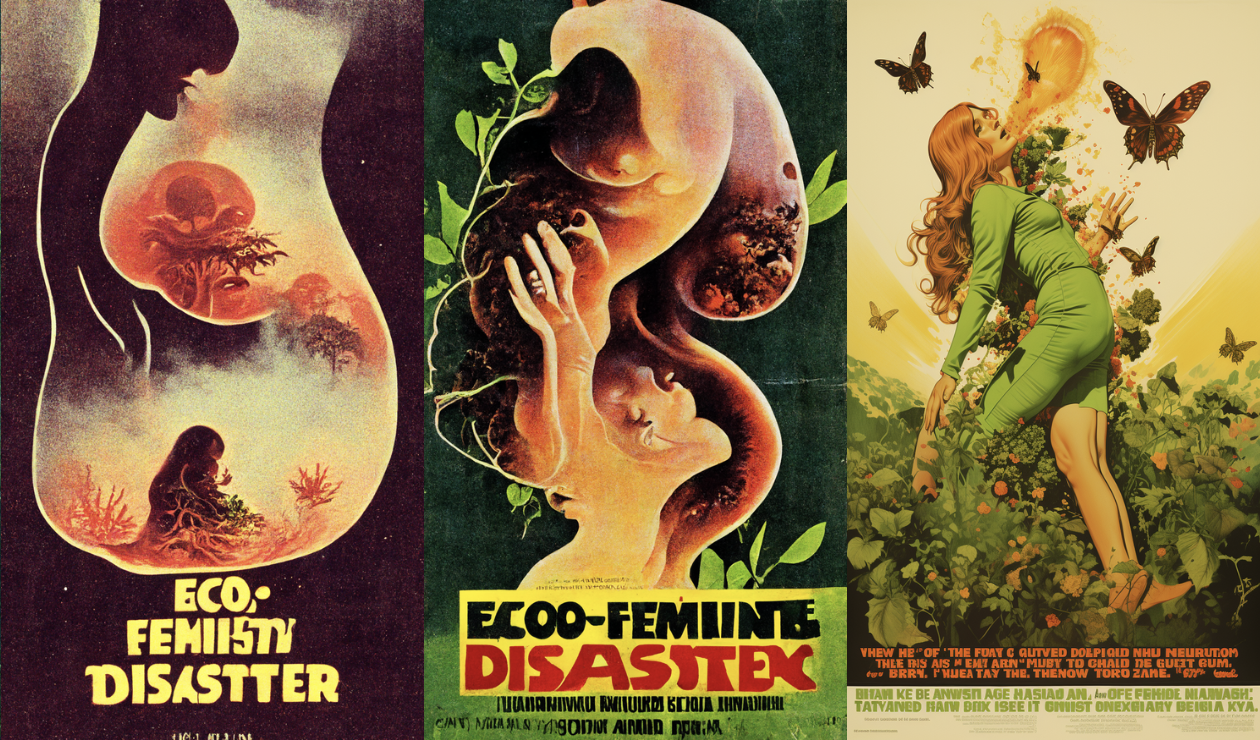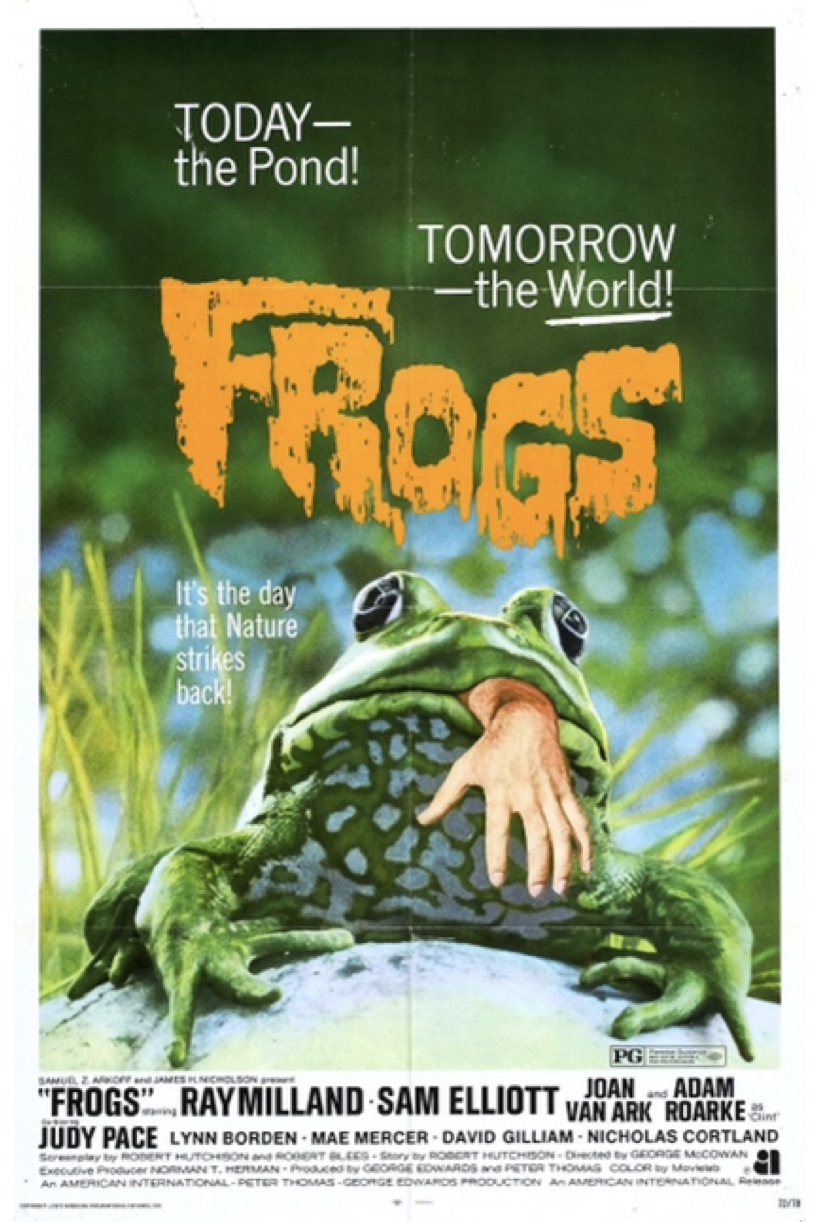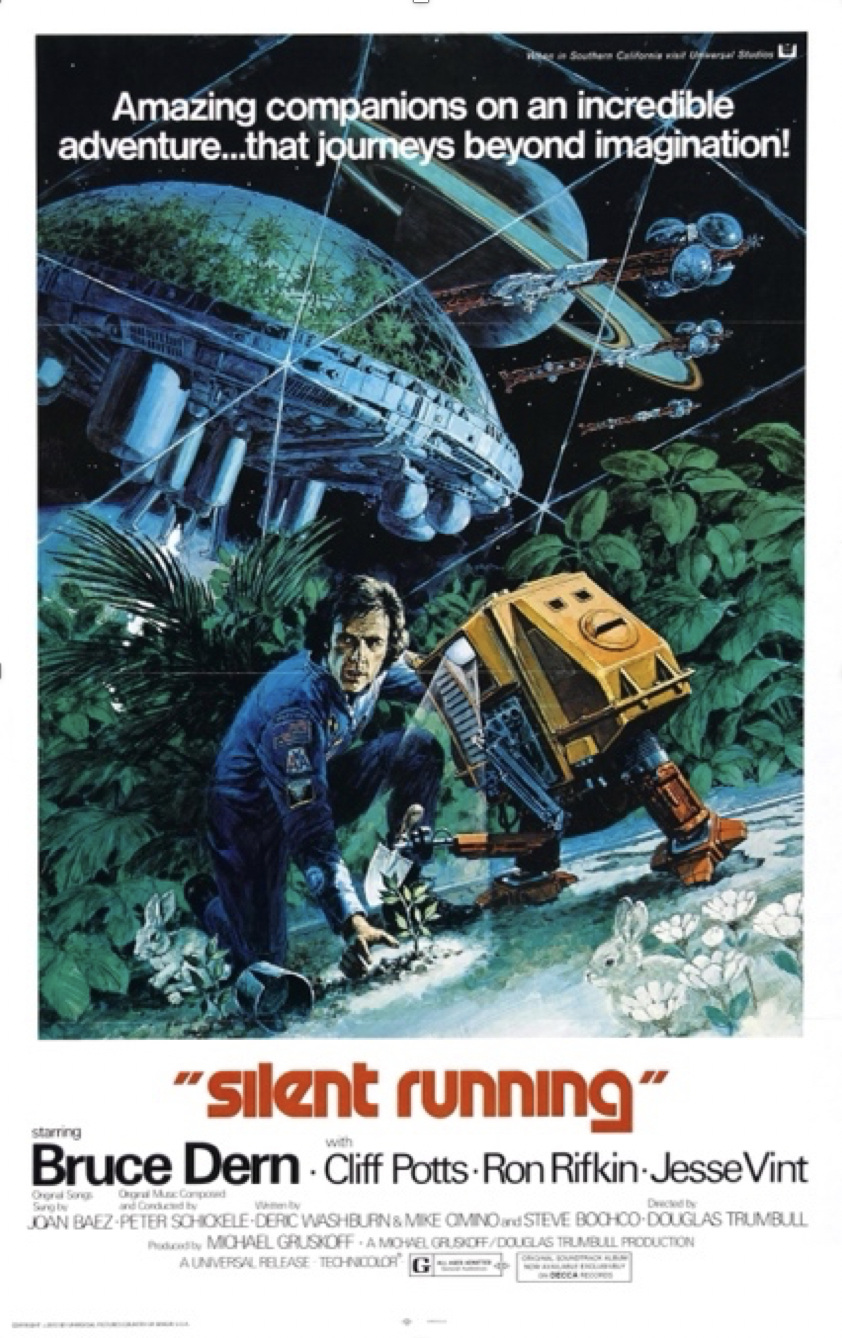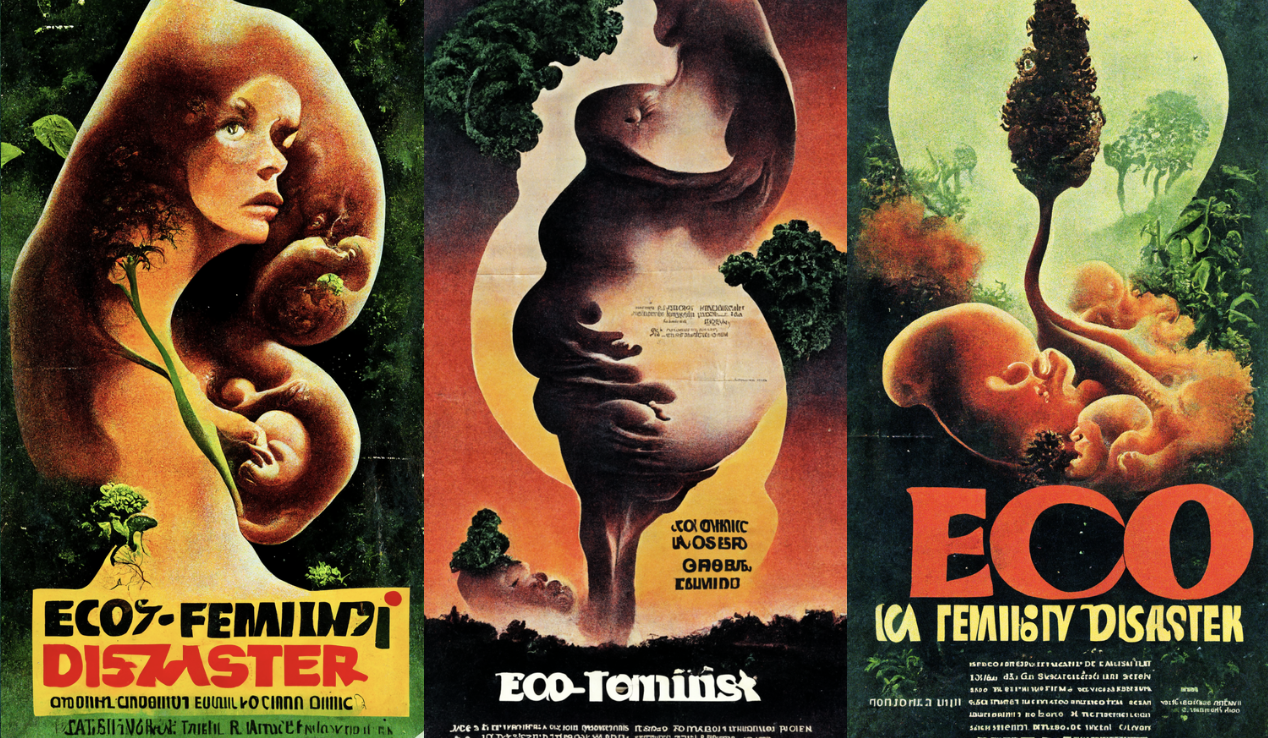Emma Piper-Burket, University of Colorado Boulder
“By the beginning of the 1970s, man had brought the destruction of his environment close to the point of no return. Of course, there was a great deal of rhetoric about saving the Earth, but in reality, very little was done.” So begins the opening narration of No Blade of Grass (Cornel Wilde, 1970) the first in a small subgenre of big budget eco-disaster films from the 1970s. This playlist highlights a selection of these films. Unlike blockbusters of subsequent decades, the films listed below all explicitly call out humanity’s role in the ongoing climate crisis. In the 1970s, climate change was still a bipartisan issue – it was President Nixon after all who passed the clean air act and banned DDT– so Hollywood studios didn’t have to weigh the financial risk of alienating large portions of their audience. It wasn’t until the 1980s, when the energy industry realized the implications of where conversations about the climate were heading, that the topic became so politicized. Incidentally this timing coincides with the drop-off of environmentally themed blockbusters. There is something intriguing and satisfying in seeing the topic discussed openly onscreen in b-movie blockbusters, though the premises are wholeheartedly subsumed into anthropocentric narrative arcs that ultimately favor traditional Hollywood male hero worship.
I am working with these films as part of my practice-based PhD research at University of Colorado Boulder. Eco: A Feminist Disaster is an ongoing series of works composted from this original collection of films, re-worked through a process of corrective montage. The themes that emerge in the new film texts center around man’s fears and attempts to control fertile bodies, as the relationship between human, insect, plant, and mammal slowly equalize onscreen. One such iteration can be found at the following link: https://vimeo.com/868423123/61b661d876?share=copy.
Alongside these films, I work with the AI-image generator Midjourney to create movie posters for each new film, considering the parallels between the cut-up method of found footage filmmaking and AI image-generation as two methods of teasing out unnoticed relationships from our cultural detritus to create new more organic ecosystems that reveal deeper interspecies networks and relationships that traditional Hollywood narrative allows for. The resulting images embodied a surprisingly parallel ethos of feminist posthumanism that emerged as part of the video editing process. Human and plant merged and melted together in unexpected and often unsettling ways. Just as cutting up the films enabled new relationships to become highlighted within a set designated landscape of material, the process of creating a film poster using AI image generators had a remarkably similar effect, highlighting thematic relationships that can be felt intuitively but are not readily apparent. I made two sets of posters, one in December 2022, and another in September 2023, even using the same prompts the results were vastly different.
More information about the project, and more examples of Emma’s creative practice, can be found on her website here: https://emmapiperburket.com/eco-a-feminist-disaster-series.

***
No Blade of Grass (Cornel Wilde, Metro-Goldwyn-Mayer, US, 1970)

A virus that decimates the world’s wheat crops reaches England. The film follows a London family fleeing to the countryside to escape the chaos caused by the famine. Tagline in small print on the movie poster reads “Yesterday, they were decent people letting their environment die. Now, they are savages, killing to keep themselves alive.”
Currently streaming on Criterion Channel or available to rent on Apple, Youtube and Amazon.
Frogs (George McCowan, American International Pictures, US, 1972)

Freelance photographer Pickett Smith (Sam Elliot) is invited into the home of a wealthy southern family during their annual birthday celebration for the patriarch Jason Crockett (Ray Milland), as amphibious life slowly overtakes the mansion and kills the family off one by one. Watch to the end as old man Crockett is left on the floor, fallen out of his wheelchair and covered in amphibians after haughtily declaring earlier in the film, “I still believe man is master of the world.”
Available to stream free on Pluto.tv at the following link: https://pluto.tv/en/on-demand/movies/60f9ad4ab93efb001386b5b1?utm_medium=textsearch&utm_source=google.
Silent Running (Douglas Trumbull, Universal Pictures, US, 1972)

Freeman Lowell (Bruce Dern), the protagonist and keeper of the world’s last forests, is portrayed as erratic, overly emotional, and slightly unhinged- traits usually reserved for female characters in Hollywood. Douglas Trumbull’s directorial debut opens as Lowell gingerly feeds some rabbits in one of the geodesic dome forests attached to an American Airlines cargo spaceship. Early on in the film, orders come through to destroy the forests and return the ship to commercial use.
Available to rent on YouTube, Amazon, or AppleTV.
Day of the Animals (Directed by William Girdler, Film Ventures International, US, 1977)

Day of the Animals opens with a scrolling text that explains recent scientific findings about the harmful effects of aerosol spray cans on the Earth’s ozone layer. The info card ends with the advocacy message: “This motion picture dramatizes what COULD happen in the near future IF we continue to do nothing to stop this damage to Nature’s protective shield for life on this planet.” Lens filters create rainbow rays of light cutting through the images onscreen to make visible the effects of ozone depletion that are normally imperceptible to the human eye.
Available to stream free on Tubi at the following link: https://tubitv.com/movies/520093/day-of-the-animals.
Kingdom of the Spiders (Directed by John Cardos, Dimension Pictures, US, 1977)

The overuse of insecticides kills off the tarantula’s food supply, as the spiders overrun a small Arizona cattle town in search for food. Farm veterinarian Dr. Robert Hansen (William Shatner) works with University Professor Diane Ashely (Tiffany Bolling) to try to stop the infestation. Watch for the subjective lens and tarantula POV as well as fiery demise of a pilot spraying pesticides over the land.
Available to stream free on Tubi at the following link: https://tubitv.com/movies/100001373/kingdom-of-the-spiders.
The Swarm (Irwin Allen, Warner Brothers, US, 1978)

One of the few eco-horror films with an A-list cast, The Swarm stars Michael Caine as Dr. Bradford Crane, an entomologist who is put in charge of efforts to stop a deadly swarm of killer bees threatening the United States. Watch for a red-faced Caine making an impassioned speech to an army General that includes the line, “Honeybees are vital to the environment!”
Available to rent on YouTube, Amazon, or AppleTV.
Prophecy (John Frankenheimer, Paramount Pictures, US, 1979)

Secretly pregnant Maggie (Talia Shire) accompanies her husband Rob (Robert Foxworth) to a remote forest in Maine where he’s been assigned by the Environmental Protection Agency to investigate a land dispute between a paper mill and the community of indigenous activists who live there as a strange monster launches a series of brutal attacks in the woods.
Available to rent: Amazon or AppleTV
Watch free in low resolution on Youtube at the following link: https://www.youtube.com/watch?v=bvuKId1GmXk.
Emma Piper-Burket is a visual artist, filmmaker, and writer using fiction, non-fiction, and collected media to investigate interactions between nature, society, and the human spirit. Her work is process-based and research driven, incorporating social trends, ancient history, science, politics, ephemera, and the natural world into her creative practice. Emma has received support from Bemis Center for Contemporary Arts, Ebert Foundation, Sundance Institute, Light Cone, Visual Studies Workshop, Marble House Project, and Middlebury Script Lab, among others for her creative works; her writing has appeared in Reverse Shot, Mubi Notebook and RogerEbert.com. She holds an MFA in Cinema and Digital Media from FAMU in Prague, a BA in Arabic and Classical Studies from Georgetown University, and is currently a PhD candidate in Critical Media Practice at University of Colorado Boulder.
